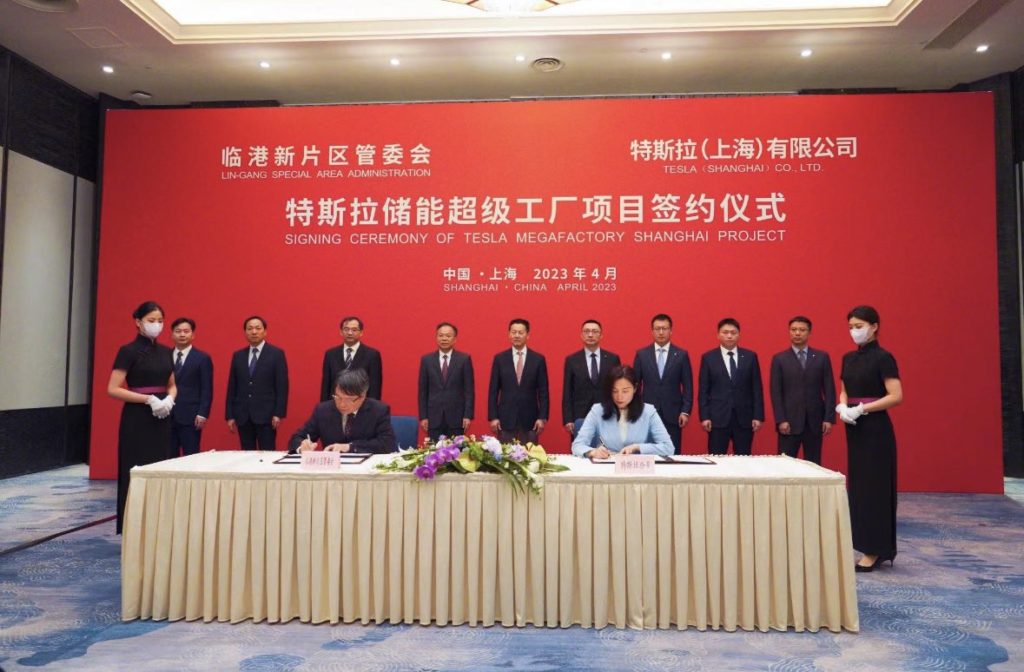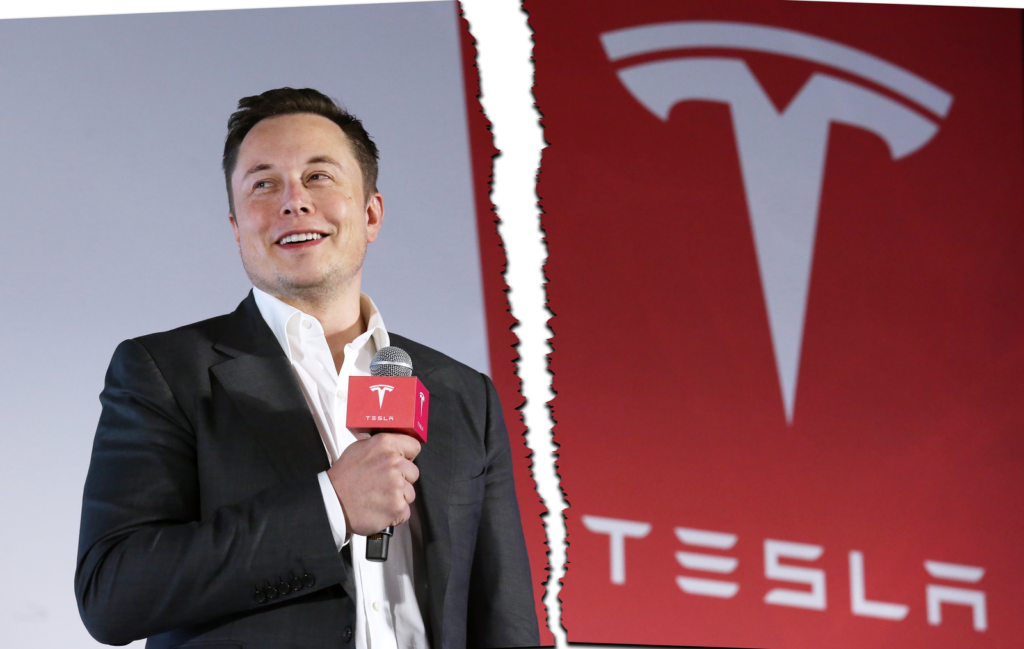|
Getting your Trinity Audio player ready...
|
Tesla, the leading electric vehicle (EV) maker, is set to open a Megapack battery factory in Shanghai, China, despite the rising political tension between Beijing and Washington. The company announced on Sunday that the new factory will be able to produce 10,000 Megapacks, large batteries designed to store massive amounts of electricity, which will supplement the output of the Megapack factory in California.
Megapacks are intended to be used for utilities and large-scale commercial projects and are capable of storing energy that can power an average of 3,600 homes for one hour, according to Tesla.
The Chinese state media outlet Xinhua reported that the factory will break ground in the third quarter of 2023 and will commence production in the second quarter of 2024, having the same level of production capacity as Tesla’s Megafactory in Lathrop, California, which is equivalent to 40 gigawatt-hours of energy storage.
The Megafactory will be located in Lingang, an enormous free trade zone on the outskirts of Shanghai, where Tesla’s EV Gigafactory was constructed in 2019. The Shanghai facility became the world’s largest EV production plant within a few years and is Tesla’s main export hub, supplying vehicles to most markets outside of North America.
Daniel Ives, an analyst at Wedbush Securities, believes that this announcement is a potential game-changer for Tesla in the battery market. “In this EV arms race, Tesla is further building its lead in battery technology, with the new Megapack factory in China another flex-the-muscle moment for Musk,” Ives said.
Tesla’s move comes as Apple’s Tim Cook visited Beijing last month in a show of support for the country as a market and manufacturing base amid escalating political rhetoric between the United States and China. Last week, the China Passenger Car Association reported that the company sold 88,869 units of Shanghai-made EVs in March, a figure that was 35% higher than a year ago.
Although the Chinese government had planned to phase out its costly EV subsidy program by the end of 2020, it extended it during the pandemic to avert a sharp economic slowdown. For 2023, the CPCA estimates sales of “new energy cars,” which are mostly EVs, to reach 8.5 million units, which will account for 36% of total car sales, according to the official China Securities Journal.

Tesla’s announcement of a new Megapack battery factory in Shanghai demonstrates the company’s commitment to investing in China despite growing political tension between China and the United States. According to a tweet from the company, the factory will produce 10,000 Megapacks, large batteries used to store electricity. The factory will be built in the Lingang free trade zone and is set to break ground in Q3 2023 with production starting in Q2 2024.
Each Megapack can store enough energy to power an average of 3,600 homes for one hour, according to Tesla. The batteries are designed for large-scale commercial projects and utilities and are not intended for use in vehicles. The Shanghai factory will have the same level of production capacity as Tesla’s Megafactory in Lathrop, California, equivalent to 40 gigawatt-hours of energy storage.
Tesla’s move to open a Megapack factory in China represents a significant opportunity for the company. “We believe this announcement is a potential game-changer for Tesla on the battery front,” said Daniel Ives, an analyst at Wedbush Securities. “In this EV [electric vehicle] arms race, Tesla is further building its lead in battery technology with the new Megapack factory in China another flex the muscle moment for Musk.”
Tesla’s move into China comes amid growing competition in the electric vehicle market. The company is the second-largest EV maker in China, behind market leader BYD, which sold 206,089 units last month. Last week, the China Passenger Car Association reported that Tesla sold 88,869 Shanghai-made electric vehicles in March, up 35% from a year ago.
Tesla’s Shanghai factory is the company’s primary export hub, supplying vehicles to most markets outside of North America. The announcement of a new Megapack factory in the same location highlights the company’s ongoing commitment to investing in China and underscores the importance of the Chinese market for Tesla’s future growth.
Despite slowing demand in the world’s largest car market, Tesla has continued to make inroads among Chinese drivers. The Chinese government’s recent decision to end a 13-year-long subsidy for electric vehicle purchases is expected to put further pressure on car demand, but the China Passenger Car Association estimates that sales of “new energy cars,” which are mostly EVs, will reach 8.5 million units in 2023, accounting for 36% of total car sales.



